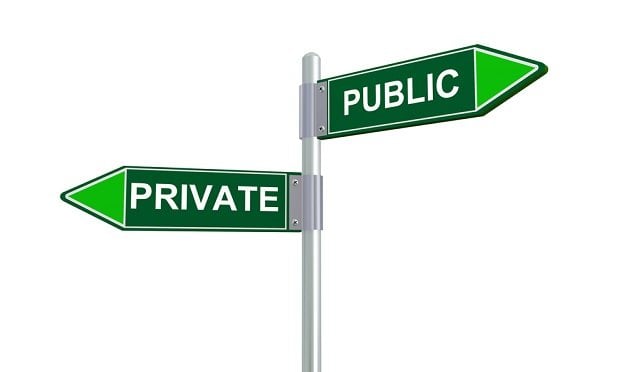 Many voters, including Democrats, support single-payer health insurance, but not as the sole option. (Image: Shutterstock)
Many voters, including Democrats, support single-payer health insurance, but not as the sole option. (Image: Shutterstock)
COVID-19 has emboldened Democratic candidates and lawmakers to push for progressive health care policies, but even a pandemic might not convince voters to support universal health care.
To be sure, Democratic members of Congress, like Massachusetts Senator Elizabeth Warren, have pushed for increased health care funding, such as providing paid sick leave and free personal protective equipment to essential workers. Even presidential candidate Joe Biden, with a far less progressive take on health care than his Democratic rival Bernie Sanders, cited the coronavirus in calling on President Donald Trump to drop the federal government's support of a lawsuit challenging the constitutionality of the Affordable Care Act. More than 30 million Americans are unemployed due to COVID-19, many having lost the health insurance their employers provided them.
Several studies, however, reveal that Americans remain unlikely to vote for universal or government-funded health care.
"Americans are seeing what's happening with coronavirus, and that can influence how they're thinking about specific policies, but the weight of prior experience is that doesn't necessarily mean, by and large, that it's really going to change," said Daniel Hopkins, a political science professor at the University of Pennsylvania. "That said, it is possible political activists and parties may want to use this as an opportunity."
In a poll conducted March 25 through March 30, the Kaiser Family Foundation found that 69% of Americans favored a government-administered health plan but only if it is a public option that would compete with private health insurance. That response hasn't changed because of the coronavirus.
Yet progressive Democratic lawmakers have pushed "Medicare for All," which would make single-payer health insurance the only option for Americans. Democratic presidential candidate Bernie Sanders, a U.S. Senator from Vermont, made the issue part of his campaign – but lost significant state primaries to Biden.
"The short story, from a political science standpoint, is health care is very, very hard to revolutionize," Hopkins said.
Even President Barack Obama ushered in the Affordable Care Act, one of the biggest legislative changes in American health care, by retaining employer insurance plans as options, he said.
The key takeaway, supported in Kaiser's polling research, is that many voters, including Democrats, support single-payer health insurance, Hopkins said, but not as the sole option.
"In general, the public voices some level of support for government provided health insurance," he said. "They assume it's an option for government provided health care, rather than a mandate or requirement that you have public provided health insurance. Kaiser research has shown if you explain 'Medicare For All' means you'd have to give up employer-provided insurance, support plummets. You saw this in the Democratic primary process."
That was the finding at a Feb. 21 conference, hosted by the University of Pennsylvania's Leonard Davis Institute of Health Economics, at which Hopkins was a panelist.
But that was before COVID-19 spread throughout the United States. By March, most states were under lockdown orders, and, by early April, the U.S. reported 400,000 cases of coronavirus. Hopkins said he later did his own online polling of 1,912 residents of Pennsylvania, both Democrats and Republicans, between March 14 and March 18, and between April 4 and April 8.
"Between those dates, we did not see much of a shift in how people think about single-payer health insurance," Hopkins said. "Overall, a slight majority opposed, but I did not see much of a shift."
His March survey found that 26% strongly favored "Medicare for All," and 17% somewhat favored it. It also found that 42% strongly opposed, and 8% somewhat opposed.
Those percentages varied little one month later. The April poll survey found 31% strongly favored, and 15% somewhat favored, but 42% still strongly opposed, and 7% somewhat opposed.
Hopkins said he did not expect the percentages to change that much, even as coronavirus cases keep rising. Americans could be more likely to shift views on increased spending, particularly to hospitals and doctors and nurses who are "politically popular," but general attempts at health care reform are a gamble.
"There's a real jump from saying the government needs to be practical in protecting Americans from coronavirus and needs to make critical investments in the health care system, which large numbers of Americans support, to saying we need to have a single-payer, government-provided health insurance with no employer provided insurance," he said. "Yes, it's reasonable for people who are politically engaged to think this crisis may lead us to rethink how the health care system works, but, by and large, people find evidence of the views they already have."
Complete your profile to continue reading and get FREE access to BenefitsPRO, part of your ALM digital membership.
Your access to unlimited BenefitsPRO content isn’t changing.
Once you are an ALM digital member, you’ll receive:
- Breaking benefits news and analysis, on-site and via our newsletters and custom alerts
- Educational webcasts, white papers, and ebooks from industry thought leaders
- Critical converage of the property casualty insurance and financial advisory markets on our other ALM sites, PropertyCasualty360 and ThinkAdvisor
Already have an account? Sign In Now
© 2024 ALM Global, LLC, All Rights Reserved. Request academic re-use from www.copyright.com. All other uses, submit a request to [email protected]. For more information visit Asset & Logo Licensing.








